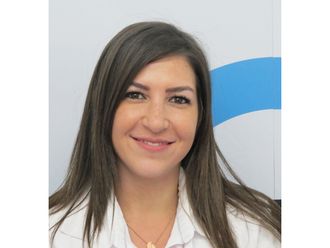It’s safe to say that tea and coffee aren’t just drinks in the UAE anymore, but whole experiences in themselves. Retail sales for coffee grew by 6 per cent in volume terms and 8 per cent in value terms in 2017 to reach 21,842 tonnes and Dh2.4 billion, with premiumisation and new coffee experiences driving consumption, according to Euromonitor.
Tea isn’t far behind: sales grew by 5 per cent in volume and 9 per cent in value to 10,993 tonnes and Dh775 million, with demand driven by health and wellness positioning and new and interesting flavours.
The plethora of coffee bars and tea lounges as well as hole-in-the-wall shops littered around town are testament to the upsurge in demand over the years.
And it isn’t expected to stop.
Retail sales for coffee are set to see a CAGR of 7 per cent in volume and 6 per cent in value at constant 2017 prices to reach 30,734 tonnes and Dh3.2 billion in 2022, adds Euromonitor. For tea the figures are 6 per cent in both volume and value terms to reach 14,715 tonnes and Dh1 billion in 2022. But experts say the threshold is set to be reached earlier, by 2020.
As global exports of coffee grow, the UAE is in a position to both contribute and benefit from it. The developed infrastructure is expected to increase the penetration of new coffee offerings in the domestic market and enhance expertise. And more and more coffee brands — regional and international — are looking to enter or expand within the country.
“Over the past few years, the coffee market has been the fastest-growing segment within hot beverages in the UAE,” says Serene Haddad, Marketing Manager for Nescafé Coffee at Nestlé Middle East. “This growth in the UAE mirrors the global trend, where coffee is becoming more popular across nations and continents.
“The rise of the coffee shop is a key driving force for growth and change in coffee consumption habits in the region and in the UAE specifically. People tend to choose an indulgent cup with more creamy and sweet choices as opposed to the traditional black coffee. Cold coffee consumption is increasing as well, with people going for iced coffee and cold ready-to-drink coffee. We are also witnessing a growth of coffee capsules. Within the retail coffee segment, coffee mixes are among the fastest growing.”
While the UAE has an established traditional coffee culture, Dilhan C. Fernando, CEO of Dilmah Tea, says tea is enjoying a renaissance as the millennial and centennial generations “explore the wellness and taste adventure that quality tea offers”.
“In 2016 imports of tea were around 78,100 metric tons, according to the International Tea Committee, and re-exports 16,100 metric tons. The role of Dubai as a trading hub for tea is growing, with figures influenced by economic conditions in the region.”
Fernando says there are two key drivers of growth, with wellness being the most significant and the next premiumisation linked to cultural and food trends.
“The benefit that tea offers in connection with diabetes and cholesterol are especially important in the Middle East and Asia where diabetes, child diabetes in particular, is a cause for concern,” he says.
And beyond wellness is the increasingly adventurous consumer “seeking different cultural experiences based on taste and provenance”.
Fernando says while retailers have traditionally maintained a conservative approach to tea — focusing on the core categories — in the absence of the variety the 21st-century tea drinker wants, “it is the dedicated boutiques and lounges that will deliver the variety and experience that consumers seek”.











